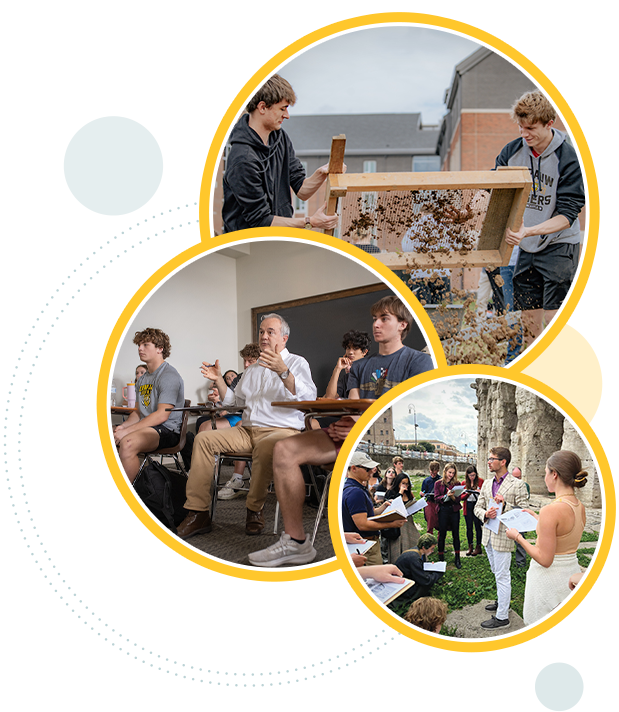A degree in literature produces an agile mind – the very foundation of a twenty-first century liberal arts education. Through the study of literature in its many forms, you will learn how to thoughtfully take in information, synthesize it through an array of methodologies and convey your own ideas with both precision and insight. In the process, you’ll prepare yourself for nearly limitless career opportunities, all while surrounded by a close and impassioned community of readers, writers and scholars.
The literature curriculum offers inclusive and enlivening courses which explore culture, history, political science, race and ethnicity, gender and sexuality, philosophy, sociology, psychology and the arts. These courses enable you to study language as an art form, inviting you to investigate your own cultural context as well as think beyond it. Outside the classroom, you can enjoy unique opportunities such as the Kelly Writers Series, which offers several readings a semester and gives literature students the opportunity to learn from some of the most influential and renowned contemporary writers of the day.
| Major | Degree | School | Format | Course Credits |
|---|---|---|---|---|
| English Literature | Undergraduate, B.A. | College of Liberal Arts and Sciences | On Campus | 10 Courses |
English Literature
Undergraduate, B.A.
On Campus
10 Courses
| Minor | School | Format | Course Credits |
|---|---|---|---|
| English Literature | College of Liberal Arts and Sciences | On Campus | Courses |
English Literature
On Campus
Courses

Leveraging the resources of the Creative School, the English literature major at DePauw is housed in the Department of English. This department provides students with the written and verbal communication skills to be engaged members of society in any professional path they choose.
